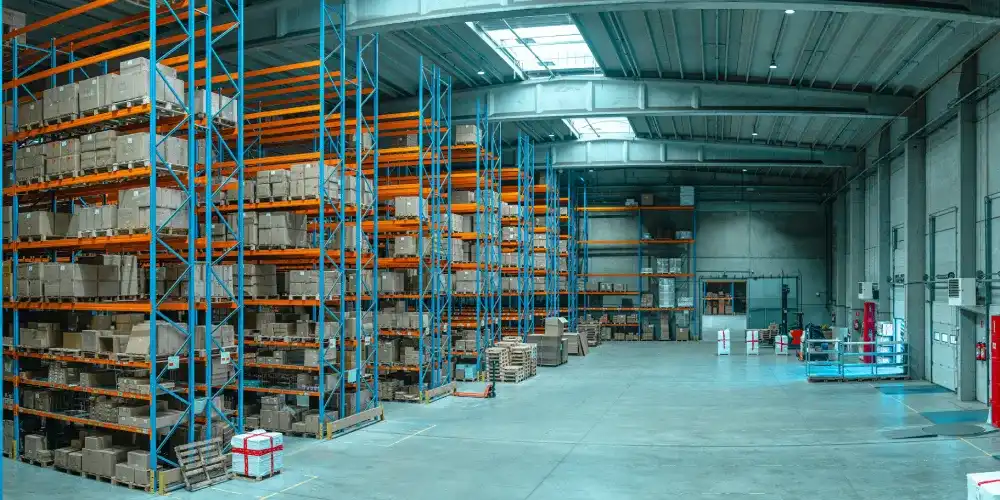Futureproof your supply chain through digital transformation
3 min read

Digital solutions can make manufacturing supply chains more resilient but you need to understand which options are right for your organisation
Recent research by the manufacturing association Make UK revealed that the country’s manufacturers are reducing the geographical spread of their supply chains, with 42% of those who responded to the survey for its “Operating Without Borders – Building Global Resilient Supply Chains” report saying that they were increasing the proportion of suppliers based in the UK.
Why? To mitigate risk. Today’s supply chains are highly complex and, as the pandemic demonstrated, highly vulnerable to disruption. As the Make UK report put it, “supply chain resilience is currently top of the agenda for policy makers, government, and business leaders alike.
“External business factors such as the pandemic, Brexit and large-scale geopolitical shifts such as the Russian invasion of Ukraine have highlighted how important it is to invest in global supply chain resilience.”
However, while near-shoring procurement can help to reduce risk, digital transformation provides a more resilient long-term solution. Here we explore the why and the how.
Ambition versus implementation
According to global consultancy McKinsey, having learnt serious lessons from the pandemic, those responsible for procurement now have “a once-in-a-generation opportunity to future-proof their supply chains.”
“The complexity and diversity of supply chain risks require smart management tools”
McKinsey
In the same report, McKinsey presents digital technology as a vital tool in reducing potential supply chain disruption. “The complexity and diversity of supply chain risks require smart management tools,” it argues, “Leading companies are applying a range of new techniques, from digital alerting systems to track potential disruptive events to risk ‘heat maps’ that help them focus their attention on high-risk regions and suppliers.”
Although many UK manufacturers share a desire to implement digital technology within their supply chains, this ambition has yet to be translated into action.
28% of respondents admitted that they do not have a strategy to implement digital supply chain solutions
The research from Make UK, for instance, found that 42% of manufacturers plan to invest more in the kinds of digital technologies that will make their supply chains more flexible and more responsive. At the same time, however, 28% of respondents admitted that they do not have a strategy to implement digital supply chain solutions. Only 20% agreed that they were at an advanced stage of implementation.
Understand what your needs are
The benefits of digital supply chain solutions extend beyond risk reduction and, as part of a broader programme of digital transformation, can create a competitive advantage that is about far more than simply reacting to global events.
“Digitalisation has never been a more critical element in any organisation”
Emma Botfield, Regional Managing Director (UK and Ireland), RS Group
“From eProcurement, digitised inventory management, through to condition monitoring, digitalisation has never been a more critical element in any organisation,” says Emma Botfield, Regional Managing Director (UK and Ireland) at RS Group. It can, for example, “give maintenance engineering more visibility and creates the agility to make better and quicker decisions.”
How can you make the most of this potential? “You need to understand what the word ‘resilience’ means for your department and for the wider organisation,” advises Gary Harvey, Head of Field Sales for RS Maintenance Solutions. “I think the majority of manufacturing industries don’t give this the attention it warrants.”
Your supply chain is unique, continues Harvey, therefore the digital solution must meet your specific needs. The level of insight and planning this requires isn’t always available internally, but other sources of support are out there. “There are many ways digitalisation can be introduced to businesses by partnering with a strategic supplier,” says Botfield.
Choose the technology that will deliver
Once you have mapped out what your organisation needs to create a more resilient supply chain, you can decide on the best technology to deliver those results.
Dashboards and analytics are currently the most used supply chain monitoring technologies in the UK manufacturing sector. The Make UK study discovered that 57% of organisations use these as they are simple to operate, widely available and relatively low cost.
The survey respondents also reported using real-time sense and response systems (22%), more advanced technologies such as robotics and automation (20%), artificial intelligence and machine learning (19%) and augmented and virtual reality (12%). Blockchain technology is slowly being adopted in this area too (9%).
Just remember that if you’d like your organisation to benefit from the resilience, flexibility and competitive edge that digital transformation offers, you don’t have to embark upon this journey alone. Working with a trusted partner such as a strategic supplier allows you to take advantage of all the benefits and get vital support along the way.

